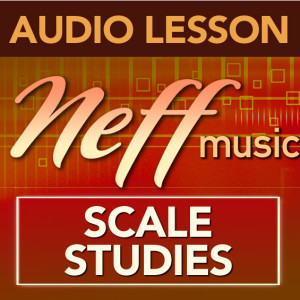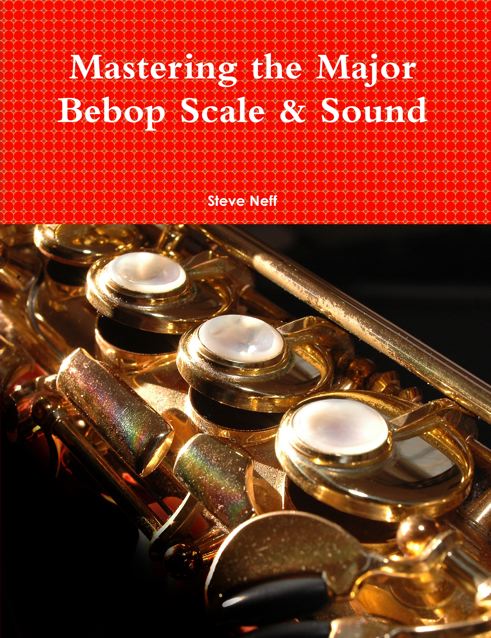Description
Major Scales and their Diatonic Seventh Chords form the backbone, the essential structure, of most of the music we want to play. In this lesson I discuss and demonstrate Diatonic 7th Chords. I talk about what they are and just how important it is to the improvising musician to have these patterns down in all keys. If you’ve learned all your Major Scales and are wondering “Where to now?” this lesson is the next step you need to take. Beyond just playing your Major Scales, you need to have an understanding of how the Major Scales are structured and the chords that arise from them. The chord progressions of many of the tunes you are trying to improvise over, are built upon these diatonic chords. A thorough familiarity with these Diatonic Seventh Chords is essential if you want to move on to improvising over the chord changes.
In this lesson, you’ll listen and play along, as I show you how these chords are formed from notes of the Major Scales you’ve already learned. I demonstrate each Diatonic Seventh Chord and give you different patterns to help you get these down and learn how the chords want to resolve. I show you how playing these patterns using different rhythms and starting on different notes, will build your familiarity with each key, and give you the technique you’ll need to improvise with confidence over chord changes. I talk about using these core exercises to build a fast, efficient technique and I give you tips on the methods I used to build my own technique. You’ll learn how to make yourself thoroughly familiar with the Major Scale and the Chords contained within it. I also demonstrate how these simple exercises can be put together to form the basis of some great sounding licks and solo lines.
Finally, once you understand what the Diatonic 7th Chords are, I give you different ways to practice them, which will prepare you to improvise over the chord progressions that you’ll encounter on all those pop, rock and jazz tunes. The chords and practice exercises are all written out for you on the PDF sheet that accompanies this lesson.
These Diatonic 7th Chords are one of the most important, essential, things you can practice! Don’t skip this essential building block of your improvising fundamentals. (16 Minute Audio Lesson)








Stanley –
Dear Steve,
Firstly, I have to confess that I really under-estimate the effect of your audio lessons. I just finish “listen” to your lessons regarding Major scale and Diatonic 7th Chords. Before I listened to them, I thought that “hmm….how come there was audio file? Shouldn’t that be any practicing score, many patterns, many exercises…etc?” “And there is only one sheet?!”.
Ok, then I listen to your lesson. THEN, amazingly, I have to confess and now I really understand, “one sheet is much fruitful than thousands of patterns”. Because your information in one lesson is much useful than many PDF lessons that are available on the Internet. I didn’t say that those PDF lessons/exercises which provided by others are
useless. What I want to emphasize is that you can explain clearly via the audio lesson. You can focus on what we should focus on. And most importantly, you can “demonstrate”
what will be the result after learning/practicing the “one sheet” file.
My finger movement is always slow and I always want to improve it. Initially I thought that by practicing many patterns will help me. I always want to improvise, but I always cannot catch up the time because of my finger movement. Yesterday night after I practicing 3 major scales, C, C#, D, I play the Jamey Aebersold Vol. 24 and I just “stick” to D major. I found out that this time, I can stick myself at the scale without touching other non-chord note such as G#. I really really happy about that. And I know that it is because of your lesson, because of your demonstration. 😀
There are still a number of lessons that I will listen, but the most important thing is that for each lesson I really need some time to master them. To be honest, your lessons are
really useful and I really appreciate that you provide these lessons to us, especially in this attractive cost. 🙂
I wish you all the best in your career.
Best Regards